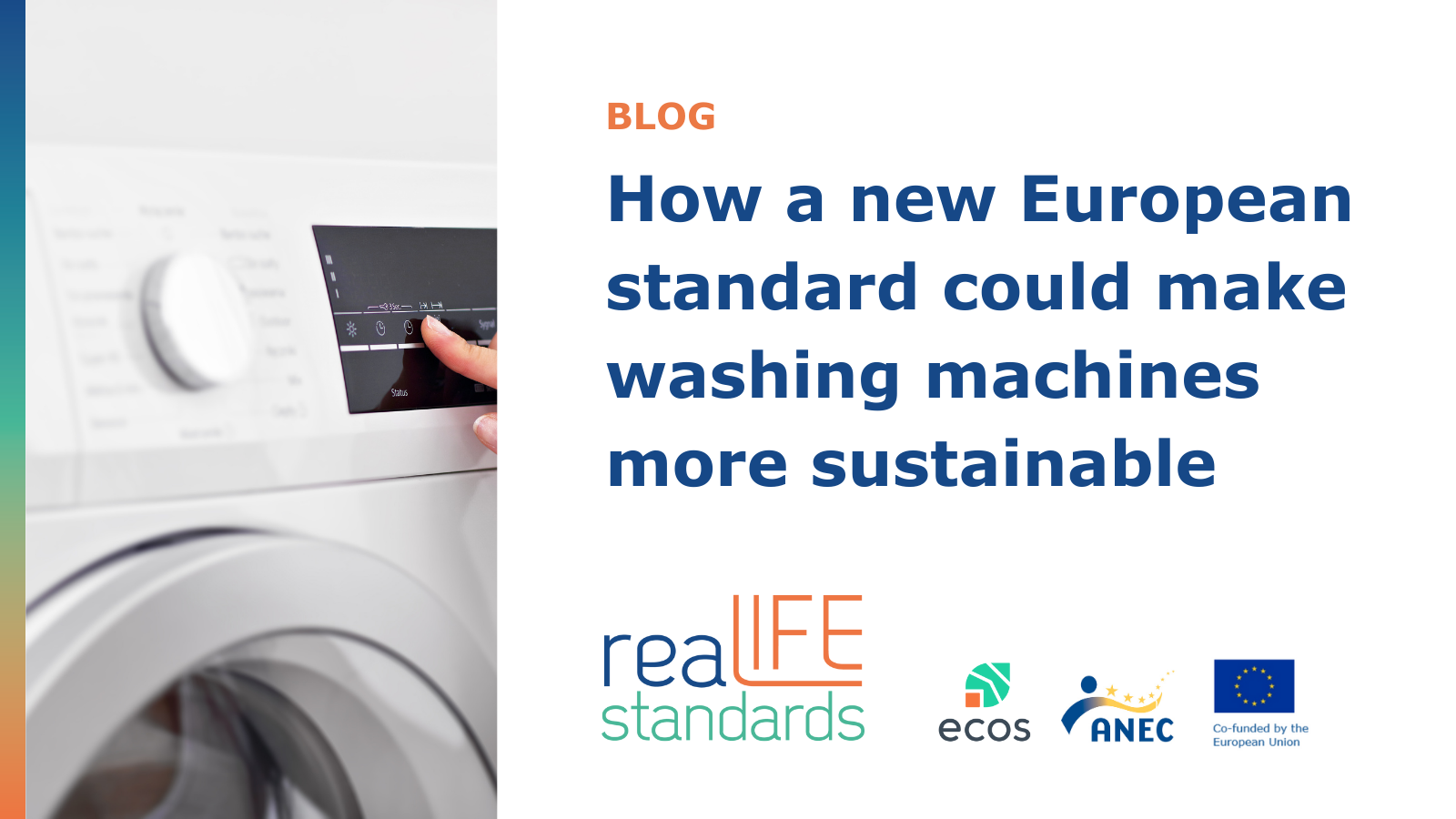How a new European standard could make washing machines more sustainable
More than nine out of ten European households have a washing machine. While their energy efficiency has improved over the years, their overall sustainability still leaves a lot to be desired. Ensuring these appliances last for a long time is crucial if we want to manage global resources sustainably. This can be achieved by testing such products properly before they enter the market. With a new test methodology for washing machines in the pipeline, this could be just around the corner. Here’s how one new standard could help to make it happen.

The lifespan of the 200 million washing machines in Europe has decreased in recent years, with units replaced on average every 8 years – far less than consumers expect. What can be done to address this problem? European standardiser CENELEC may have found the answer.
EN 50731: A standard for the future
CENELEC has published a draft standard that outlines a new way of determining the longevity of household washing machines. EN 50731 ‘Durability – Measurement method for the assessment of the reliability of washing machines for household use’ is based on a standard that ECOS and ANEC have helped to shape. The proposed new method involves analysing the reliability of the machine through physical testing.
The standard uses testing methods that respect real-life conditions – including load quantities and washing temperatures – while accelerating real-life usage patterns. This development could help to get more reliable washing machines onto the market faster and reduce the burden for manufacturers, who could soon have their products fully tested in mere months. While this is a positive step, it will be important to monitor the success of the standard, given the novelty and need to further validate results.
In the context of the reaLIFEstandards project, ECOS and ANEC have been heavily involved in the development of this standard, ensuring the methods it puts forward are as close as possible to real-life usage, and preventing it from being used as a tool for greenwashing. Given the potential positive impacts, we hope to see this standard adopted as soon as possible.
What difference could this standard make?
EN 50731 could be good news for both EU consumers and the environment. If washing machine manufacturers use the new testing methodology and apply it systemically before putting their products on the market, consumers could be guided toward the most reliable machines. Longer-lasting products do not only save end-users money, but also help to protect the environment: if washing machines last for a long time, fewer need to be produced, and fewer precious resources will be used as a result.
Manufacturers will also benefit from this test methodology as they will be able to demonstrate to consumers that their products are more robust than those of their competitors, driving competition towards more sustainable products, rather than towards cheaper ones.
This standard could spark change
This test methodology is the first of its kind, so it could potentially inspire similar solutions for other products. Washing machines are complex, so if it is possible to develop an accelerated reliability test methodology for them, it is possible for other, simpler, types of products such as vacuum cleaners and dishwashers. We hope this standard, once validated, will be used as a blueprint for many other household appliances and consumer electronics.
We also hope that the European Commission will consider the existence of such standards when reviewing EU ecodesign and energy labelling requirements. What if, on top of the repairability and energy efficiency requirements already developed for washing machines and other products, they introduced an obligation for all manufacturers to run these reliability tests (when they exist) and make results visible on the energy label? What if the EU set minimum life expectancy requirements for washing machines thanks to this standard? It would be game over for poorly manufactured, short-lasting washing machines.
What will happen next?
A draft version of EN 50731 was submitted to National Standards Bodies (NSBs) on 3 May. They will have until 26 July to provide comments. ECOS and ANEC, with their members, encourage NSBs to support this standard. If all goes to plan, publication is expected by the end of 2025.

 By
By  By
By 
